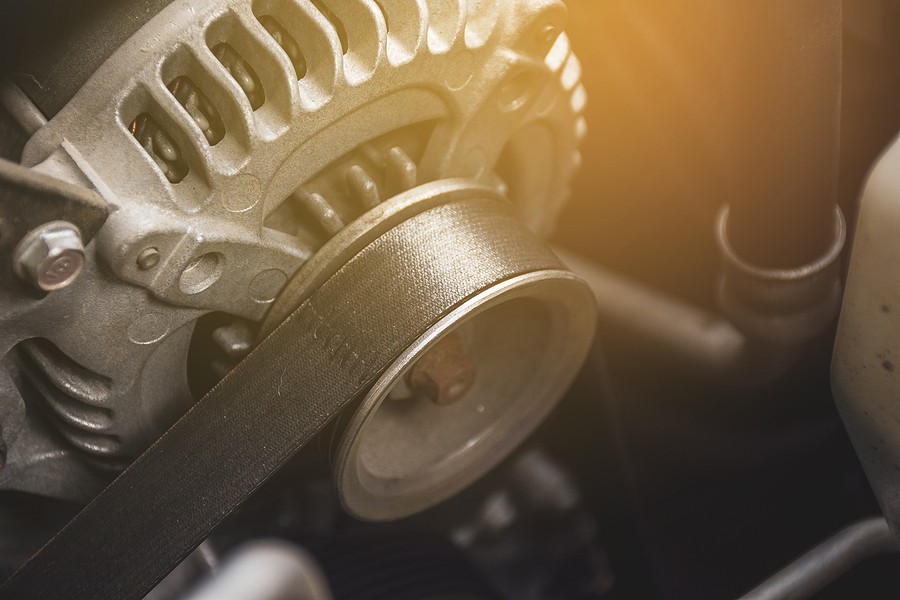If you're looking for “how to tell if your car has a bad alternator?” Check for these 10 symptoms:
- Warning lights on the dashboard
- Dimmer headlights
- Flickering headlights
- Low battery charge
- Connections issues
- Damaged belts
- Weird smell
- Hard acceleration
- Difficulty starting
- Vehicle stalling
Many of us are familiar with certain vehicle components like the engine or transmission. However, fewer people are familiar with some less common components like the alternator.
Understanding one or two things about the alternator help you maintain your driving and prevents undesirable situations.
This article walks you through some details about the alternator, and more specifically, it answers the question, “how to tell if your car has a bad alternator?” The article also highlights some potential options for fixing your alternator and some expected repair costs.
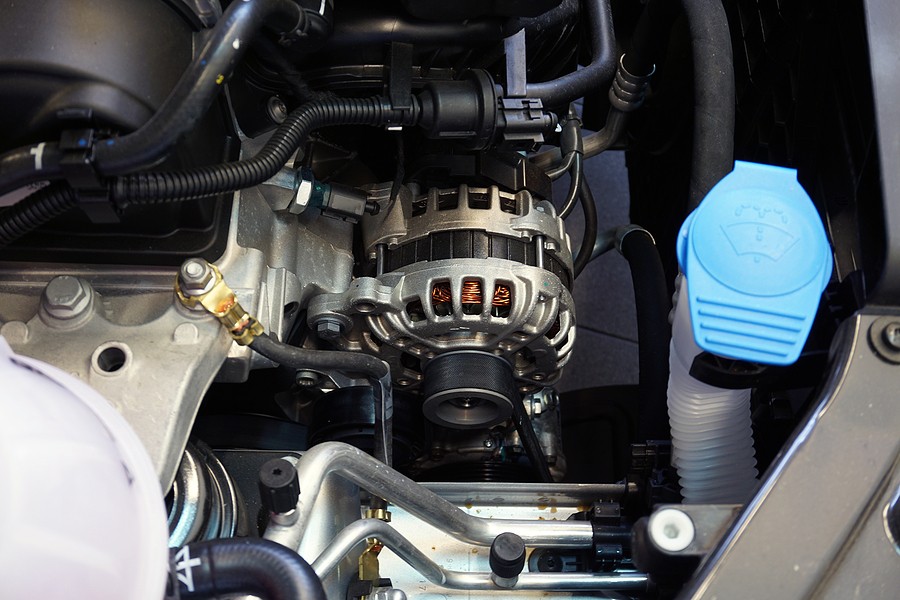
What is the alternator, and what is it do?
Before we dig into the details about “how to tell if your car has a bad alternator,” it is critical that we understand the main role so we can get a sense of how critical it is to fix it immediately once it goes bad.
To help you understand the role of the alternator, it is essential to clarify the common misconception about the role of the battery in your car. Many people think that the battery is responsible for supplying the different electric components with charge as your vehicle runs. However, that's not the case because it's the alternator's job.
An alternator is simply a conversion machine that converts the mechanical energy coming from the engine into electrical energy to support and power the different electric components in your vehicle. Keep in mind that the alternator is only engaged when the engine runs.
In other words, if you turn on the headlights or any other electric equipment when your vehicle engine is turned off, that's when you drain the car battery because there is no support from the alternator. Therefore, you'll end up in a situation where you come back in the morning and see that your vehicle's battery drained because you forgot the lights turned on All night.
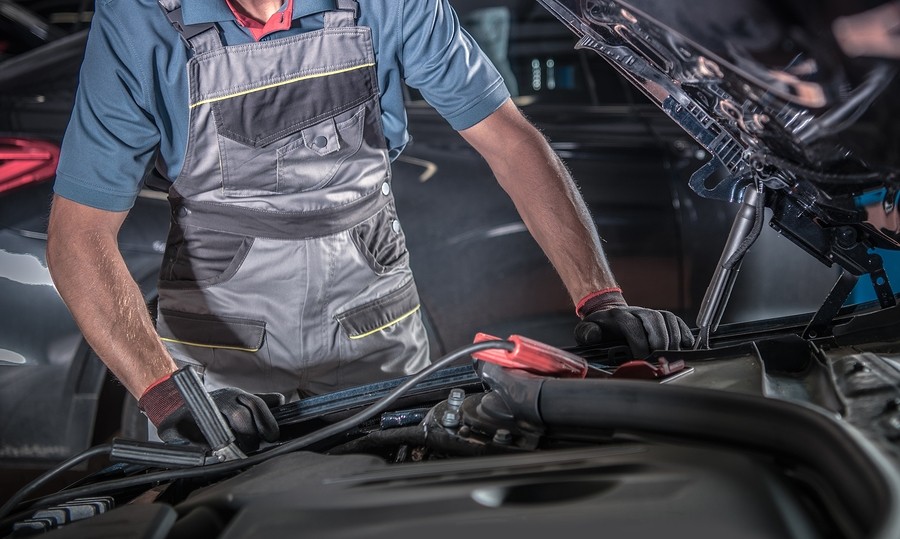
How long does an alternator last?
The alternator is typically a durable component in your vehicle, and it doesn't go bad frequently. However, there will be a point where you must replace it. In most scenarios, the lifetime of the alternator is about 80,000 to 50,000 miles. This can translate into 7 to 10 years of a vehicle's lifetime.
How to tell if your car has a bad alternator?
While there is an expected lifetime for your alternator, it might not go well prematurely. In other words, if you drive your car hard and don't pay good attention to your driving habits, you can easily deal with alternator damages sooner than it should.
Despite the alternator's timing, you must keep an eye for any symptoms indicating that your vehicle's alternator is failing. In other words, you'll have to ask yourself a question, “how to tell if your car has a vet alternator?”
The good news is that automotive experts put together a list of potential symptoms indicating a failing or initially failing alternator. Let's take a closer look at ten of these symptoms:
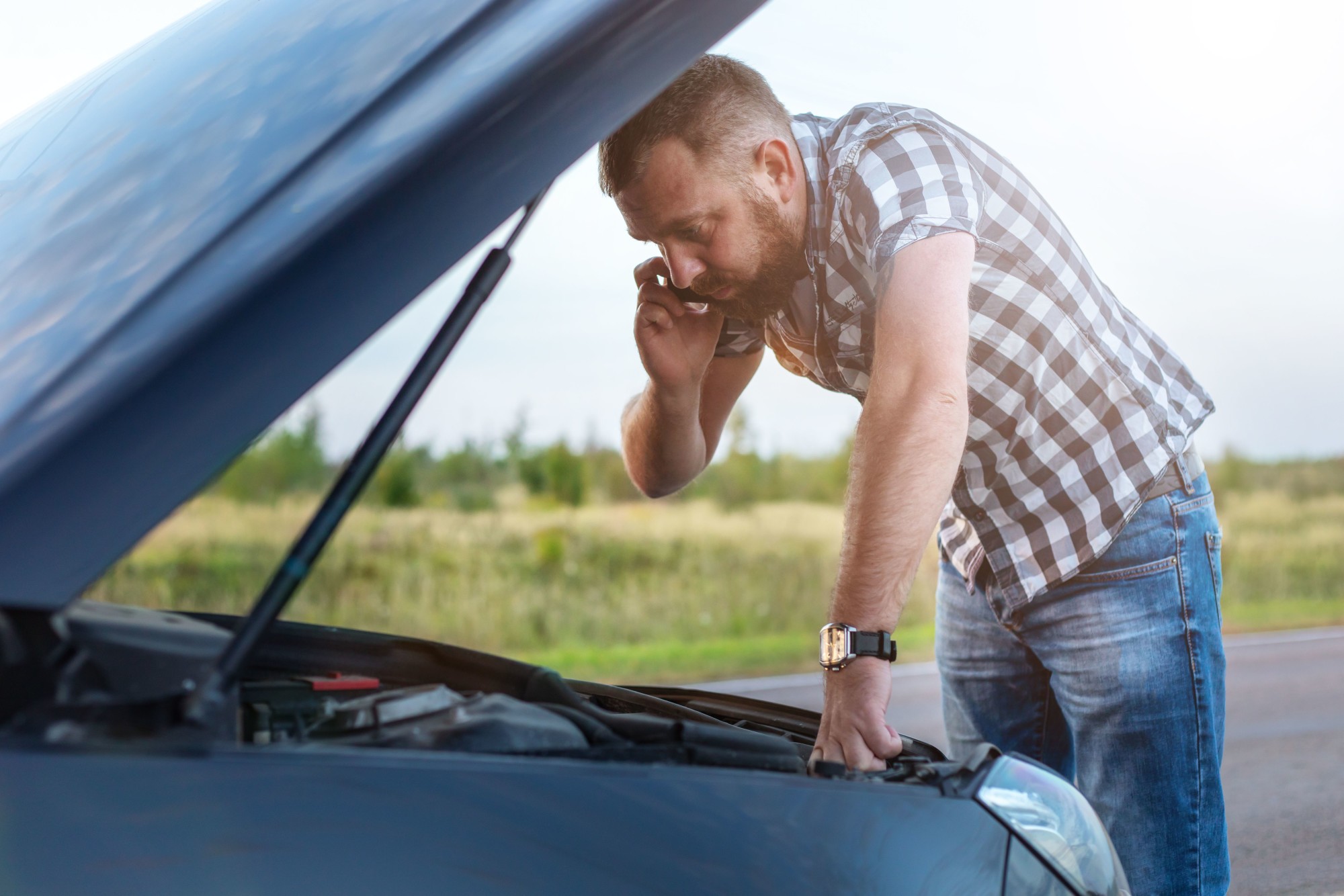
1. Warning lights on the dashboard
The first and most common symptom indicating that you're dealing with a bad alternator is when you notice some warning lights on the dashboard. You must never ignore a warning light on the dashboard because it's a way for your car to communicate with you and let you know that there is an issue with one of your internal components.
When the alternator goes bad, you'll most likely see something that looks like a battery. People might think it's a bad battery, but it is the alternator that is going bad. A bad alternator might trigger damage in other components, leading to a check engine light illuminating on some rare occasions.
Keep in mind that if the warning light is very general, like the check engine light, your mechanic must confirm that the issue is coming from that alternator; however, once you notice that battery symbol on the dashboard panel, it is an issue with the alternator that requires a quick check-up to confirm and determine what's going on.
2. Dimmer headlights
In some instances, you might notice that the headlights are not operating at their full capacity. In other words, they might start very bright, and they might get dimmer at some point in time. It could be an issue with the alternator or probably the battery when this happens.
Therefore, if you confirm that we don't have any issues with your battery, then the next step for you is to check the alternator here. A quick way to do so is by using jump-start cables and skipping the battery's job. However, if you still see the headlines, it's most likely a problem with the alternator.
Of course, some other potential culprits might lead to dimmer headlights, so you need to confirm with the mechanic before moving forward and replacing the alternator.
3. Flickering headlights
Like the last symptom, sometimes the headlights do not get dimmer, but instead, they might get very bright and then turn off. This could repeat again and again depending on the issue in your alternator.
What's happening here is that the alternator cannot provide a full charge to the headlights to keep them charged, and instead, the headlights might rely on whatever charges are available in the battery to turn on for some time. Once the battery cannot handle the required demand, they turn off.
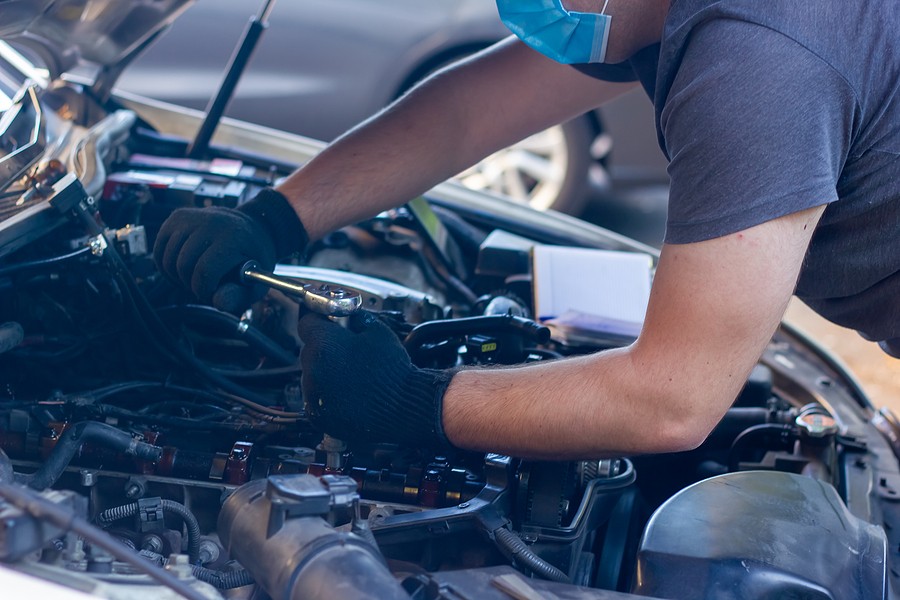
4. Low battery charge
As we mentioned earlier, the alternator is responsible for supplying and charging all electric components in your vehicle. These components also include the battery. So, in other words, the battery is only needed to start your car. Once you start your vehicle and the engine wants it to get going, the alternator starts producing energy and charging the battery to get it ready for the next time you start your vehicle.
If you realize that the battery has some charge issues and it seems like it doesn't have enough charge to start your vehicle, the problem could be related to the battery itself and an issue with the alternator.
5. Connections issues
Sometimes we might think that there is a problem with the alternator, but it turns out to be just an issue with the connections. Therefore, before you spend money on replacing an alternator, you must check the connections by performing a quick visual inspection.
Sometimes the connection could be bad, and in some other instances, they might be loose. All it takes to fix the issue is to tighten these loose connections and move forward. So most connections might also impact the battery's performance, and some people might think it's an issue with the alternator.
6. Damaged belts
As we mentioned earlier, the alternator is responsible for converting any energy coming from the engine into electric energy. There should be a connection between the alternator and the engine through some belts. These belts go bad, the communication between the engine and the alternator stops, and that's where you might think that you have a bad.
Therefore, if you didn't notice any other symptom indicating that the alternator itself is bad, it can simply be an issue with the belt itself, and that's the next step that you mechanics should take by checking the damaged belts.

7. Weird smell
Assuming that you performed all required inspections, the next potential thing you might notice is weird smells. As we always say, if you notice any weird smell coming from your vehicle, whether it's related to the bad alternator or anything else, you must take it seriously because it could indicate a serious problem.
Depending on what is going wrong, you might notice some electric fire smell coming from the alternator, indicating that the alternator is overheating and is about to fail.
8. Hard acceleration
A bad alternator might also impact how your vehicle accelerates. For example, have you ever tried pressing on the gas pedal and realized that the vehicle is not accelerating as it should?! That could be a potential issue related to the alternator.
Unfortunately, difficulty or slow acceleration might also be related to a long list of potential culprits. Therefore, you cannot immediately say it's about an overnighter and list you confirm with your mechanic.
9. Difficulty starting
Like the acceleration issue, you might start dealing with difficulty starting your car. Although we mentioned that the alternator would not intervene in the starting process, it is the main source of charging your battery. Therefore, it can indirectly impact how your vehicle starts.
10. Vehicle stalling
Finally, A bad alternator might impact your vehicle's drivability and cause it to stall as you're driving it. Vehicle stalling is extremely dangerous, and it can be more dangerous if you're driving at the highway speed and there are some other speeding vehicles around you.
Therefore, whenever you notice any of the mentioned symptoms of a bad alternator, you must consult your mechanic to replace the alternator immediately.
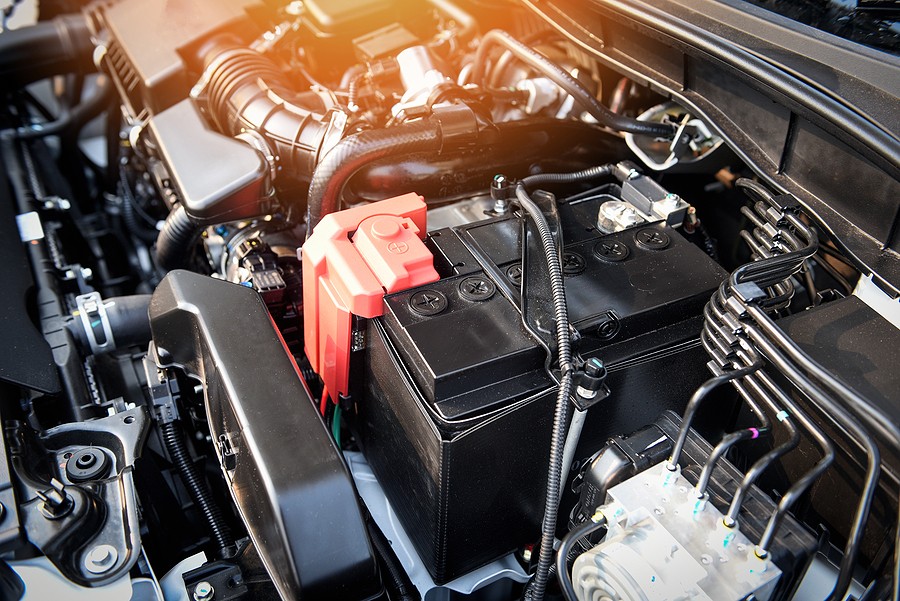
How much does it cost to fix a bad alternator?
If the alternator fails, the next step for you is to replace it. Now repair costs depend significantly on where you get the job done and whether you're going to do it yourself or have somebody do it for you. Typically, fixing an alternator should cost you $500 and $1000.
If you have the right mechanical skill sets, you might be able to place the alternator yourself and only pay for parts cost. However, if you don't have that, you end up either going to a dealership or a small independent shop. Of course, location, where you're going will determine how much you will pay for labor costs. Therefore, you must evaluate the situation and see whether it's worth going to the dealership or going to an independent shop where labor costs are much lower.
Final thoughts
The alternator is an essential component in your vehicle. Unfortunately, when it goes bad, there's no way you can charge that looks to components as you are in your engine if you are. Therefore, you must understand “how to tell if your car has a bad alternator?”
This article walked you through 10 potential symptoms of a vet alternator. Once you notice any of these symptoms, you must consult your mechanic and confirm that the issue is coming from the vet alternator before you go ahead and replace it.
Once you confirm, you must replace it immediately. Otherwise, you can't drive your car in some scenarios here. If your car has other major complications, it might not be worth the investment putting this $500 or $1,000 to fix the alternator. Instead, it could be the perfect time to get rid of your car and buy a better one that doesn't have any problems. Are you looking to sell your car with some problems? Cash cars buyer is always here to help you!
Cash Cars Buyer is one of the top-rated car removal companies in the nation that guarantees to pay you the top dollars and provide you with free towing despite your living location around the United States.
Our process is very straightforward and doesn't take more than a couple of days to get your car removed safely and for the most money.
All it takes you is to:
- Describe your car's type and condition
- Receive our instant free quote
- Accept the quote
- Get your car removed and receive your cash payment on the spot!
To learn more about our process and our team, you can reach out to us by calling us at (773) 791-4363 or visiting our home page click on the free instant online offer.

